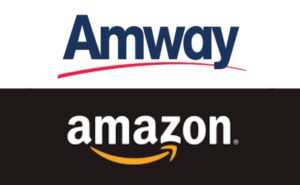By Anushka Verma
In a battle between Direct Selling Entities (‘DSEs’) and e-commerce platforms, the Delhi High Court has decided in the favour of the latter and has declared that selling products of DSEs online without taking consent of the entities is not a trademark infringement. In the recent High Court judgement of Amazon Seller Services Pvt. Ltd. v. Amway India Enterprises Pvt. Ltd. & Ors., the court reversed a judgement by the single judge bench, thereby allowing the e-commerce platforms to engage in such transactions.
Relevant Parties:
The dispute revolves primarily around two parties: Amway, a Direct Selling Entity and Amazon, an e-commerce platform.
A Direct Selling Entity (DSE) is an entity that does not sell its products and services through traditional retail marketplaces. They do not have a designated place for the purpose of carrying out their business. Instead, a DSE entails the help of various non-salaried individuals called Direct Sellers. The direct sellers sell the products further at their local level. A commission of that sale is their income, while the remaining goes to the DSE. Direct Sellers may further recruit more direct sellers, and in this manner, a DSE gets involved in multi-level structure of business. The ordinary business model of Direct Selling Entities allows an arrangement between DSE and ‘Direct Sellers’, eradicating the need of intermediaries, wherein the DSE distributes its goods through independent direct sellers. Prior to 2016, this business model was not governed by any law. In 2016, the Department of Consumer Affairs issued a Model Framework for Guidelines on Direct Selling, directing the States and Union Territories to formulate such models for governance of DSEs.
Electronic commercial platforms or e-commerce platforms are platforms that merely offer a place for sellers to sell their products. It is an online marketplace in which different vendors sell their products. They act as a connection between the seller and the customer in a virtual marketplace. They also offer various services like packaging and delivery of products to consumers and allow customers access to thousands of products at the same time, granting them various choices at various prices.
Facts:
In late 2018, Amway came across its products being sold on Amazon and other platforms. These products were being sold by Amway’s direct sellers, by tampering with the original products, or selling fake products by associating it to the name of Amway. Amway has a strict policy of quality control of its products and this sale was interfering with its ordinary course of business, by hurting Amway’s goodwill and reputation, and hampering its further sales. The contention therein is that Amway did not give permission to these platforms to sell its products online, as was required by Clause 7(6) of the Direct Selling Guidelines (DSG), 2016. The e-commerce platform alleged that the DSGs were not binding in law, and that they were further exempted from any liability by virtue of Section 79 of the Information Technology Act, 2000 as they were merely intermediaries.
The Impugned Judgement:
The learned Single Judge of the Delhi High Court delivered a judgement on 8th July 2019, in favour of Amway and Ors., restraining the e-commerce platforms from selling products of the DSEs on their platform, under the purview that these platforms had not taken authorisation to sell the products. The judgement also laid down that the DSGs were binding as a law, and that Amazon and other platforms were in gross violation of the same. On the trademark issues, the Single Judge held that the there was a trademark infringement by Amazon.
Four issues for determination were formulated down in this case, which were then taken up as is by the Division Bench of the Delhi High Court in appeal. The questions were as follows:
- Whether the Direct Selling Guidelines, 2016 are valid and binding on the defendants and if so, to what extent?
- Whether the sale of the Plaintiffs’ products on e-commerce platforms violates the Plaintiffs’ trademark rights or constitutes misrepresentation, passing off and results in dilution and tarnishes the goodwill and reputation of the Plaintiffs’ brands?
- Whether e-commerce platforms are “intermediaries” and are entitled to protection under the safe harbour provided in Section 79 of the Information Technology Act and the Intermediary Guidelines of 2011?
- Whether e-commerce platforms such as Amazon, Snapdeal, Flipkart, 1MG, and Healthkart are guilty of tortious interference with the contractual relationship of the Plaintiffs with their distributors/direct sellers?
With regard to the first issue, the Single Judge declared that the Guidelines have the binding force of law. Not according the Guidelines a position of law would render the DSEs without any remedies. With regard to the second issue, the learned Single Judge concluded that Amway, Oriflame and Modicare are owners of their respective trademarks. There has been passing off, misrepresentation and dilution/tarnishment of the products and business of the DSEs. It was also concluded, on the third issue, that the e-commerce websites had actively aided in such infringement by providing storage, packaging and delivering the products, and therefore cannot take the support of the safe harbour provisions under Section 79 of the IT Act, 2000. Pursuant to the same, the Single Judge also concluded that the e-commerce platforms were guilty of tortious inducement to breach of contract, as they had knowledge of the existing contracts between the DSEs and their direct sellers, and still continued to allow the sale of their products on their platform.
Judgement by the Division Bench:
The case before the Division Bench arises out of appeals filed by Amazon, Snapdeal, and Cloudtail against the order of the Single Judge Bench. The Division Bench reversed the judgement by the learned Single Judge on many counts. A common thread ran through the judgement, that the learned Single Judge had formulated and determined issues that were not specifically pleaded by the parties. In none of the suits filed was there any prayer that DSGs should be declared a binding law, or that the e-commerce platforms are not ‘intermediaries’ under the IT Act.
- DSG as binding law
The learned Division Bench questioned at the first instance whether the suits seeking the enforcement of DSGs were maintainable at all. The question was answered in the negative. While the Single Judge had made an erroneous judgement that the guidelines had attained the status of law under Article 13 of the Constitution by virtue of being notified in the Official Gazette. The Division Bench, while noting the error, pointed out that the title of the document explains its nature: “Advisory to State Government/Union Territories”. Consequently, it was evident that the DSG were meant to be purely advisory in nature. The Court pointed out that guidelines that do not have a statutory character cannot be enforced through courts, and pursuant to this, even Amazon’s non-compliance with Clause 7(6) of the DSG cannot be considered to be violation of any law.
- Trademark Considerations
The learned Single Judge declared in her judgement that there is no doubt that Amway and others are owners of their respective trademarks. The Division Bench pointed out that in absence of specific pleading with regard to the same it was erroneous on the part of the Single Judge to declare the same. Further, the Bench noted that in any case, the parties to the suits did not own their trademarks, which was held by the parent companies incorporated abroad.
The Principle of Exhaustion of Trademarks was discussed in detail in this judgement, in relation to infringement of trademarks. The learned Single Bench had categorically stated that there had been an infringement. However, the Division Bench, by relying on the judgement in Kapil Wadhwa v. Samsung Industries, reiterated that India follows the principle of International Exhaustion. It means that once a good is lawfully acquired, the rights over the said good vests in the buyer. Further selling it in any market, domestic or international, shall not amount to infringement. Section 30(3) of the Trade Marks Act, 1999 does not restrict the lawful acquisition and further sale to include an international market. The Division Bench pointed out that Amway itself also had a “Code of Ethics” which stated that once the product has been sold to the direct seller, no further condition can be imposed. Considering these circumstances, the Division Bench decided that the sale of Amway products by the direct sellers on the online platforms could not be deemed to be an infringement.
Further, reliance cannot be placed on Section 30(4) of the Act to oppose dealing of goods online as there was no concrete evidence that tampering of goods had taken place at the behest of or under the direction/control of Amazon and others. There existed no prima facie evidence to oppose such dealings on the e-commerce websites. The Bench also found no evidence of misrepresentation or passing off of the trademark as due information of the sellers were provided on these websites.
- E-commerce platforms as intermediaries under Section 79 of IT Act, 2000
Section 79 of the Information Technology Act, 2000 is a safe harbour provision for intermediaries, to save them from liability for third party information on their websites. The liability of intermediaries on e-commerce platforms has also been discussed previously. According to Section 79(1), any intermediary that complies with the provisions mentioned in Sections 79(2) and 79(3) shall not be liable for any third party information, data, or communication link made available or hosted by him. Specific reference must be made to Section 79(2)(b), which states that to gain safe harbour protection, the intermediary must not (i) initiate the transmission, (ii) select the receiver of the transmission, and (iii) select or modify the information contained in the transmission and pursuant to Section 79(3) must observe due diligence while discharging its duties.
The learned Single Bench made a distinction between ‘active’ and ‘passive’ intermediaries, stating that only passive intermediaries can claim safe harbour protection. Amazon, Snapdeal, Cloudtail and various other services were said to be ‘active’ intermediaries as they provide services like storage, packaging and delivery of the products and providing new warranties. Pursuant to this finding, it was held that the e-commerce platforms cannot take the benefit of the safe harbour provisions, and were therefore liable for the acts of direct sellers on their platforms
It was contended by Amazon and others that Section 79 did not distinguish between ‘active’ and ‘passive’ intermediaries. It grants safe harbour to all intermediaries In any case, the Intermediary Guidelines 2011 lists down the due diligence obligations of the intermediaries. According to Rule 3(1) of the Rules, an intermediary must publish its policies for the information of the users. Amazon’s policy was brought into purview, Clause 17 of which states that Amazon shall prohibit sale on its platforms of ‘unauthorised products’. However, these products were not unauthorised per se, because after the first sale, Amway had lost its right to regulate further sales. The Division Bench also took into account that Amazon was not an active facilitator of the sales process. It has no role in choosing the customers, initiating the sales, or choosing the information to be displayed. Therefore, it was in compliance with Section 79 and should be granted protection of the safe harbour provision.
Pursuant to this finding, the position of intermediaries has been made stronger than before. If the decision of the Single Bench were to prevail, then Section 79 of the IT Act would have become restricted in its scope. The aim of the Section is to provide protection to intermediaries from incurring liability due to acts of third parties. It envisages both- intermediaries who merely aid in information sharing, and to those who also provide services so long as they do not interfere in the transaction. The Division Bench has upheld the wide scope of the section.
- Tortious inducement to breach of contract.
The learned Single Judge observed that it is the responsibility of the e-commerce companies and entities to ensure that it does not encourage or aids the breach of contract between the DSEs and the direct sellers. It was held in the impugned judgement that since the platforms are allowing for the direct sellers to sell the products without quality control, or without disclosing their complete details, they are aiding in the breach of contract between the DSEs and the direct sellers.
However, this position was challenged in the appeal. The Division Bench observed that merely the fact that online platforms had knowledge about the existing contracts between the DSEs and direct sellers, and its Code of Ethics is not sufficient to claim tortious interference. Further, it was accepted that even using the facilities offered by these platforms is entirely voluntary. The DSEs must show that there was an active effort on the part of the online platforms to induce breach of contract. In the absence of such evidence, a conclusion to the end that there is an inducement to breach contract is not the correct position in law.
Analysis
The judgement by the Division Bench of the Delhi High Court was delivered by Justice S. Muralidhar and Justice Talwant Singh. They reversed the judgement delivered by the learned Single Judge and declared that e-commerce websites are not obligated to take written permission from the Direct Selling Entities, as in the current form the DSG is not a binding law. The decision has also reiterated that there exists a principle of international exhaustion of trademarks in India. The safe harbour provided to intermediaries under Section 79 of the IT Act, 2000 has also been strengthened, and therefore e-commerce websites were held to be exempted from any liability. In any case, the court held that the DSEs are entitled to file suits against their Direct Sellers if there exists a grievance, but intermediaries shall not be made liable. And lastly, the safe harbour provisions were further extended in scope for e-commerce platforms by adjudging them not liable of tortious inducement of breach of contract.
While at various points in the decision, the Hon’ble Justices mentioned the scope of the case going to trial for an extensive review of facts and evidence, it shall be interesting to see how the Direct Selling Entities approach this decision.
(We would be carrying out a separate post comparing the Amway judgement with the landmark judgement of the Delhi High Court in Christian Louboutin v. Nakul Bajaj.)
Image Source: here.



















